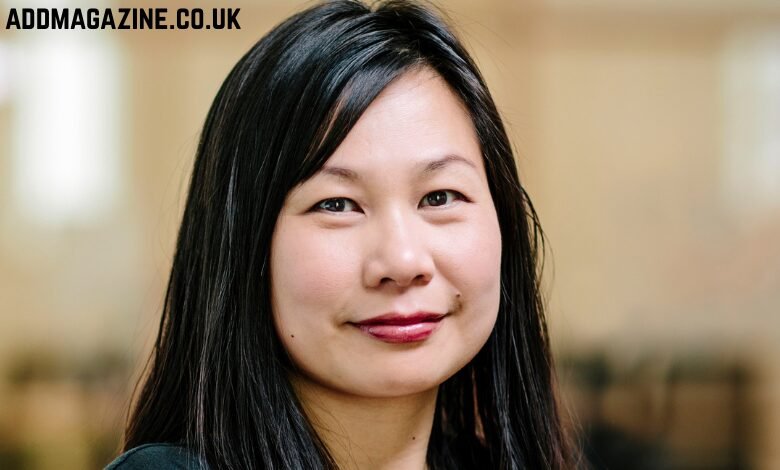Ann Hsieh is a researcher known for her expertise in mixed-methods approaches and her ability to develop or adapt methodologies to better engage stakeholders. With more than a decade of experience in the technology sector, she has worked in senior research roles for companies such as Facebook, Google, Nokia, and Yahoo. Her work spans global markets, with research projects presented at conferences in the United States, Europe, and Asia since 2005.
Her career has been built around understanding users, applying research methods that fit specific contexts, and ensuring that insights lead to practical outcomes. She currently leads research for group teams at Facebook, where she focuses on designing studies that inform product direction, improve user experience, and support business goals.
Early Life and Education
Ann Hsieh grew up between upstate New York and Taiwan, giving her a cross-cultural perspective that would later influence her research. She pursued her undergraduate degree at Cornell University, where she built a foundation in analytical thinking, data interpretation, and design principles.
Her academic path continued at Stanford University, where she earned a master’s degree. At Stanford, she expanded her expertise in human-computer interaction, user-centered design, and research methodology. The combination of her bicultural upbringing and education at two leading universities prepared her for a career that would require navigating both cultural and technological landscapes.
Professional Journey
Early Career and Entry into Technology
Ann’s entry into the technology industry came at a time when companies were increasingly recognizing the value of user research in product development. Her early roles at Nokia and Yahoo exposed her to the challenges of applying research insights to rapidly changing products and services.
At Yahoo, she worked on products serving diverse audiences, which gave her an early understanding of how regional differences shape user expectations. Her time at Nokia brought her into contact with international markets, further sharpening her ability to design research that is both globally informed and locally relevant.
Research at Google
One of Ann’s notable roles was at Google, where she became the first researcher to work on Google Music. This position required her to balance speed with depth in research, as the product was developing under tight timelines. She designed studies that could provide actionable insights without slowing the pace of development.
Her approach often involved using mixed methods—combining qualitative insights from interviews or ethnographic studies with quantitative data from user behavior metrics. This allowed her to give product teams a more complete view of user needs while maintaining momentum in product launches.
Transition to Facebook
At Facebook, Ann took on a leadership role in research for group teams. The Groups product is used by communities around the world, each with different norms, languages, and communication styles. Her work focuses on understanding how these communities form, how they maintain engagement, and what tools or features help them thrive.
Leading research at this scale requires managing multiple projects simultaneously, each targeting different aspects of the user experience. It also involves collaborating with designers, engineers, product managers, and policy teams to ensure that findings are translated into product decisions.
Research Philosophy and Methods
Ann’s research philosophy is centered on adaptability and stakeholder engagement. She emphasizes the importance of selecting or creating methods that fit the specific goals of a project rather than relying on a single standard approach.
Her mixed-methods expertise allows her to design studies that gather both breadth and depth of data. For example, she may use large-scale surveys to understand overall patterns in user behavior and then follow up with in-depth interviews to explore the motivations behind those behaviors.
Stakeholder Collaboration
Ann believes that research has the greatest impact when stakeholders are actively involved in the process. She works to bring product managers, designers, and engineers into the research cycle early so that findings are directly relevant to their decision-making.
This collaboration is not limited to sharing reports at the end of a study. She often involves stakeholders in defining research questions, observing user sessions, and interpreting findings. This approach helps ensure that the insights generated are actionable and that teams feel ownership over the results.
Addressing Time Constraints
In fast-moving technology environments, research often needs to be conducted within short time frames. Ann has developed creative strategies to meet these challenges, such as designing smaller, iterative studies that can be executed quickly but still provide meaningful insights.
She also leverages existing data sources—such as analytics dashboards or prior research reports—to supplement new studies. This layered approach allows her to deliver value even when resources or time are limited.
Handling Bias in Research
Bias is an unavoidable challenge in research, whether it comes from the researcher, participants, or stakeholders. Ann addresses this by building diversity into her samples, using multiple data collection methods, and critically examining her own assumptions.
She also advocates for transparency in reporting limitations. Rather than presenting findings as absolute truths, she frames them within the context of the study design, sample size, and potential confounding factors.
Cross-Cultural and Community Research
Ann’s upbringing in both the United States and Taiwan has made her particularly sensitive to cross-cultural differences in user behavior. She understands that product features that work well in one market may not translate directly to another due to cultural norms, language differences, or infrastructure limitations.
At Facebook, this perspective is vital because Groups are used globally. Ann’s research considers not only individual user needs but also community dynamics. She looks at how communities define themselves, how leaders emerge, and how trust is built or lost over time.
Community-Centered Design
In her work on Groups, Ann examines the role of community moderators, the challenges of maintaining healthy interactions, and the features that help members feel included. Her research helps inform product features such as moderation tools, privacy settings, and content recommendation systems.
She also explores how cultural values influence community governance. For example, communities in collectivist cultures may prioritize group harmony over individual expression, affecting how rules are enforced and disputes are resolved.
Conference Contributions and Publications
Since 2005, Ann has published and presented papers at conferences in the US, Europe, and Asia. These conferences include gatherings of professionals in human-computer interaction, user experience research, and technology design.
Her contributions often focus on practical methodologies, case studies from industry projects, and the application of mixed-methods research in product development. By sharing her experiences, she contributes to the broader professional community and helps advance the discipline of user research.
Personal Interests
Outside of work, Ann is an avid cyclist. Cycling provides her with both a form of exercise and a way to explore her surroundings, whether in urban environments or rural landscapes. She also enjoys gardening, particularly with succulents. Gardening allows her to engage with a slower, more tactile process compared to her fast-paced professional life.
Key Lessons from Ann Hsieh’s Career
Several themes emerge from Ann’s career that are relevant for professionals in research and product development:
- Adaptability is critical – Choosing or creating methods that fit the specific problem is more valuable than following rigid templates.
- Stakeholder involvement increases impact – Engaging decision-makers throughout the research process ensures findings are acted upon.
- Cross-cultural awareness shapes better products – Considering cultural differences from the outset can prevent missteps and create more inclusive experiences.
- Iterative research delivers results in fast-paced environments – Smaller, focused studies can be more effective than long, infrequent projects.
- Transparency builds trust – Acknowledging limitations and potential biases strengthens the credibility of research findings.
The Broader Impact of Her Work
Ann’s work has influenced the way teams at some of the largest technology companies integrate research into product development. By championing mixed methods and stakeholder collaboration, she has helped shift perceptions of research from being a separate function to being an integral part of the design process.
Her emphasis on community and cultural understanding has been particularly important in global products, where user bases span countries, languages, and social norms. This perspective ensures that features are designed with inclusivity in mind.
Conclusion
Ann Hsieh’s career reflects the evolution of user research as a core component of product development in the technology industry. From her early roles at Yahoo and Nokia to leading research for global communities at Facebook, she has consistently applied adaptable, evidence-based methods to solve real-world problems.
Her ability to bridge cultural contexts, engage stakeholders, and deliver actionable insights has made her a respected figure in the field. Beyond her corporate contributions, her presentations and publications have shared valuable lessons with the broader research community.
Whether working under tight deadlines or exploring the complexities of global online communities, Ann approaches research as both a scientific discipline and a collaborative process. Her career offers a model for how research can drive better products, stronger communities, and more informed decision-making.




